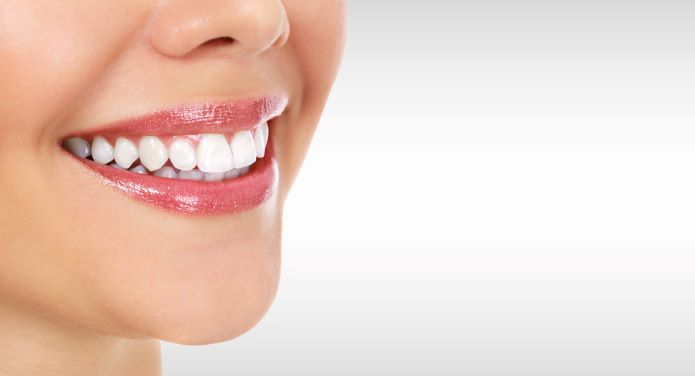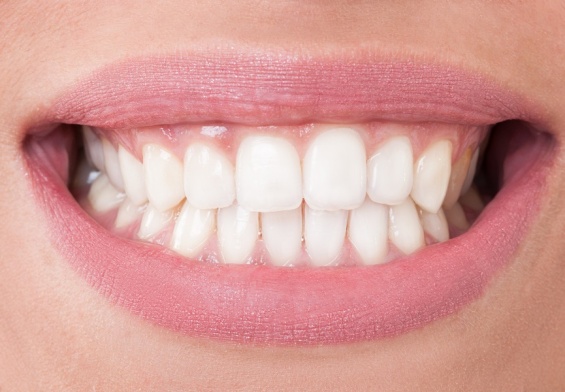If you’re searching for a restorative dentist in New Jersey, chances are you’re experiencing tooth damage, decay, or loss that affects how your teeth look or work.
Restorative dentistry focuses on repairing and replacing damaged teeth to restore their function and appearance through procedures like fillings, crowns, bridges, and implants. This helps patients chew properly, speak clearly, and smile confidently again.
This guide breaks down who makes a good candidate, what restorative dentistry includes under New Jersey law, and what patients need to know before booking a consultation.
Take the first step toward a healthier smile and schedule your consultation with a licensed restorative dentist in New Jersey.
What Is Restorative Dentistry and How Is It Regulated in NJ?
Restorative dentistry refers to procedures that restore damaged, decayed, or missing teeth to their original function and appearance. In New Jersey, these treatments must adhere to specific clinical guidelines outlined by the New Jersey Administrative Code, particularly §10:56-2.10. This code governs restorative dental services covered under public programs.
This means licensed restorative dentists in New Jersey are trained in advanced procedures and ensuring treatments meet standards for clinical necessity, materials used, and appropriate documentation.
Types of NJ Dental Restoration Procedures
Covered services include:
- Fillings: Amalgam and composite materials used based on tooth location and need
- Crowns: Reimbursed when there’s significant structural damage; prior authorization required
- Post and core: Allowed only on endodontically treated teeth and as part of final crown restoration
- Restoration of anterior and posterior teeth: Based on tooth number, age of the patient, and documentation of need
Who Is a Good Candidate for Restorative Dentistry in New Jersey?
Not every dental issue requires cosmetic enhancements. If your goal is to chew better, protect tooth structure, or prevent further damage, restorative care may be right for you. Let’s look at the most common candidates.
1. Patients with Cavities or Tooth Decay
Tooth decay is one of the most frequent reasons patients seek out restorative dental services. Cavities that have penetrated the enamel or dentin can weaken a tooth’s structure and cause sensitivity, pain, or infection.
In New Jersey, fillings are reimbursable under Medicaid/NJ FamilyCare when medically necessary. Dentists will choose the most appropriate material based on the tooth’s location and visibility.
Let’s say you have visible holes in your teeth, sensitivity to sweets or temperature, or food frequently gets stuck in your teeth. If that’s the case, you’re a likely candidate for a dental filling or other conservative New Jersey tooth repair.
2. Those with Chipped, Fractured, or Worn Teeth
Broken or fractured teeth often need more than just aesthetic correction. They can affect bite alignment and lead to nerve exposure or infection.
Extensive damage many necessitate crowns, onlays, or post-and-core restorations. New Jersey regulations need prior authorization for dental crowns and stress the need for documentation showing significant tooth structure loss.
If your tooth has broken from trauma or grinding, you may be a good candidate for a crown or partial restoration.
3. Patients with Missing Teeth
Missing teeth affect everything from speech to chewing function. Restorative dentistry offers solutions like dental bridges, implants, and removable prosthetics.
Qualifications for Tooth Replacement Candidates
- Have one or more missing teeth
- Want to avoid shifting of surrounding teeth
- Need improved biting function or aesthetics
- Have adequate bone support (for implants)
- Maintain good oral hygiene
Not every insurance plan covers implants, but bridges and partial dentures are more commonly covered. If your mouth can’t function properly, there’s a good chance these treatments may be covered.
A restorative dentist in New Jersey can help you explore your tooth restoration options.
Are Children Eligible for Restorative Dental Services in NJ?
Yes. Children are often eligible for restorative dental treatments based on age-specific guidelines.
According to New Jersey’s dental service code:
- Fillings are reimbursable for primary cuspids and molars in children up to age 9
- Crowns like preformed stainless steel are allowed for primary and permanent posterior teeth up to age 17, pending approval
- Acrylic crowns may be permitted for severely broken anterior teeth up to age 15
If your child is suffering from tooth decay or damage, a restorative dentist in New Jersey can guide you through age-appropriate treatment plans.
What If I’ve Had Failed Dental Work in the Past?
A history of failed restorations doesn’t disqualify you from receiving care. In fact, it makes you an excellent candidate for reparative dentistry. It focuses on repairing instead of replacing existing dental work.
Benefits of Repair vs. Replacement
According to dental literature, repairing a filling or crown:
- Preserves more of the natural tooth structure
- Increases longevity of both the restoration and the tooth
- Minimizes trauma to the tooth pulp
- Reduces the need for local anesthesia
- Costs less and takes less time
If you’ve had work done that has chipped, discolored, or partially worn, ask your dentist about repair options. They might be better options, especially if you’re anxious or have limiting health conditions.
Can Peer Review Help If I’m Unhappy with Past Dental Work?
Yes. The New Jersey Dental Association (NJDA) offers a Peer Review program to ease concerns about:
- The appropriateness of care (Was the treatment needed?)
- The quality of care (Did the treatment meet accepted standards?)
This process is independent, confidential, and handled by impartial volunteer dentists. It’s available to all patients, whether the dentist is an NJDA member or not.
Not every case qualifies, but Peer Review can be a valuable step before pursuing a new treatment or legal action.
Who Should Avoid Restorative Dentistry?
Not everyone is an ideal candidate for restorative procedures. According to expert sources, the following groups may be less suitable for immediate restorative care:
Patient-Related Factors
- Irregular dental attenders: Patients who do not attend follow-ups may miss signs of restoration failure.
- High caries risk patients: If new decay forms rapidly, any restoration may quickly fail.
Treatment Compliance Issues
- Noncompliant patients: Those who refuse to follow hygiene or dietary guidelines post-procedure.
- Patients unwilling to accept repairs: Those demanding full replacements despite better alternatives.
Clinical Limitations
- Cases with advanced structural failure: If more than half the restoration is compromised, repair may no longer work.
Every case is unique. A qualified restorative dentist in New Jersey will check patient history and clinical indicators before recommending affordable restorative dentistry options.
How Does a Restorative Dentist in New Jersey Determine What You Need?
The process starts with a comprehensive examination that includes:
- Visual and tactile exam of all teeth and surrounding tissues
- Digital X-rays or CBCT scans to check the extent of decay or structural loss
- Review of medical history and caries risk assessment
- Consultation and documentation (including for prior authorization if required under NJ law)
- Development of treatment plan options with cost estimates
New Jersey dental providers are held to strict standards when creating treatment plans. Expect your provider to explain your options clearly and provide copies of any submitted authorizations.
Need a personalized treatment plan? Connect with a restorative dentist in New Jersey for a full evaluation.
Benefits of Choosing a Licensed Restorative Dentist in NJ
When you work with a licensed restorative dentist in New Jersey, you’re getting more than just dental care. You’re protected by the New Jersey State Board of Dentistry’s oversight.
Key Advantages of Licensed NJ Dental Professionals
- State-mandated training and licensure ensuring proper education and skills
- Compliance with continuing education requirements to stay current with techniques
- Access to peer review and state resolution channels for quality assurance
- Patient protections through regulatory enforcement of clinical standards
- Adherence to material safety guidelines for all dental restorations
Dentists must renew their licenses every two years, prove clinical competency, and follow material use guidelines outlined by the NJ Board.
Restorative Dentistry in New Jersey FAQs
What’s the difference between restorative and cosmetic dentistry?
Restorative dentistry repairs or replaces teeth for function and health. Cosmetic dentistry focuses on appearance.
Are restorative procedures covered by insurance?
Most medically necessary restorative procedures are covered under Medicaid/NJ FamilyCare and private plans, especially fillings, crowns, and post-root canal restorations.
Can repairs really last as long as full replacements?
Yes. Studies show that repairs have similar longevity to full replacements, especially in low to medium caries-risk patients.
I have dental anxiety. Are restorative procedures painful?
Many minor restorative treatments (including repairs) need little or no anesthesia and are far less invasive than full replacements. Your dentist can tailor care to your comfort level.
Is Restorative Dentistry Right for You?
Whether you’re dealing with decay, a chipped tooth, or a failed crown, restorative dentistry in New Jersey offers a pathway to improved function and comfort. With clearly defined clinical standards, options for repair or replacement, and support systems like Peer Review, patients hold their dentists to higher standard of quality and accountability.
If you’re in pain, avoiding certain foods, or feeling self-conscious about your teeth, don’t wait.
Contact a licensed restorative dentist in New Jersey today to start your path to a stronger, healthier smile.
Resources:
Blum, I.R., Özcan, M. Reparative Dentistry: Possibilities and Limitations. Curr Oral Health Rep 5, 264–269 (2018). https://doi.org/10.1007/s40496-018-0191-1
https://www.njda.org/for-the-public/peer-review
https://www.law.cornell.edu/regulations/new-jersey/N-J-A-C-10-56-2-10




